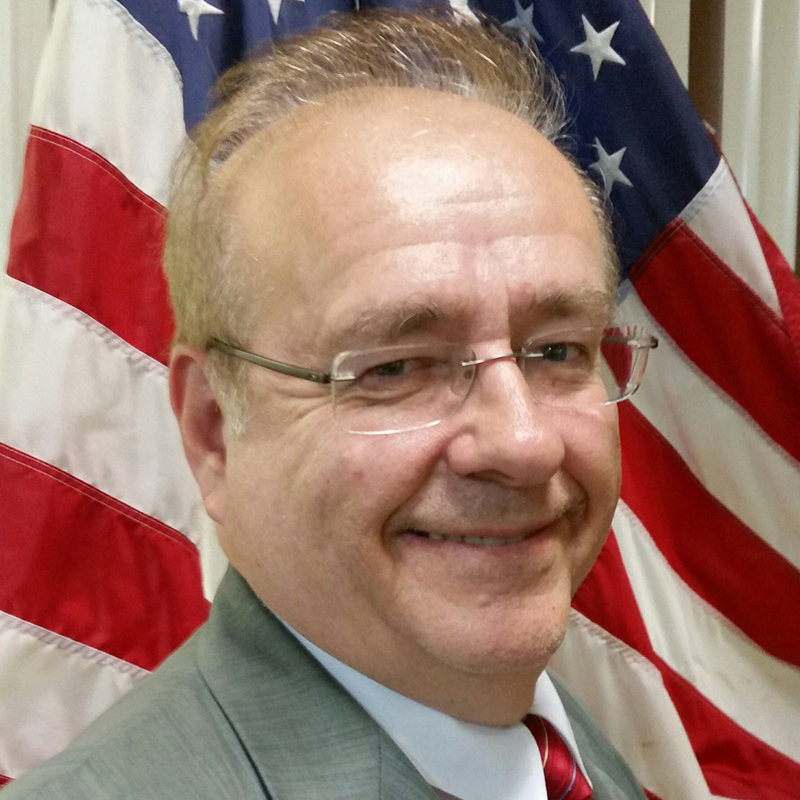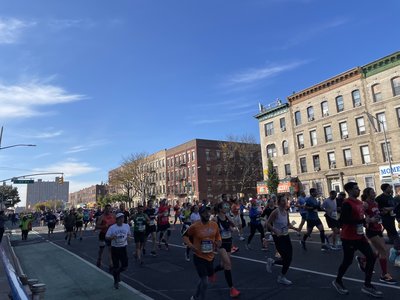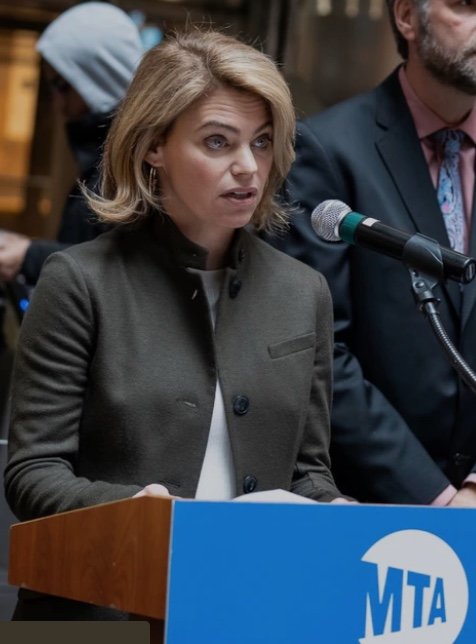The interim president of NYC Transit waded deep into the mayor’s race last week.
Sarah Feinberg slammed Mayor Bill de Blasio for the uptick in violent subway crime, saying the incidents could have been prevented if City Hall put a greater priority on putting more cops in the transit system.
It’s not necessarily unusual for an appointed public official to call out an elected member of office for failing to devise strategies that best serve constituents. If Feinberg had ended her statements there, there would have been little controversy.
However, she took it a step further when she listed five candidates currently running for mayor she said would “answer the MTA’s call for additional resources to address crime.” Those candidates are Eric Adams, Shaun Donovan, Kathryn Garcia, Ray McGuire and Andrew Yang.
In theory, as head of a public agency, Feinberg should be non-partisan. She should work with current elected officials to find solutions, not lobby voters to elect candidates she thinks she can work with or who would do a better job.
It’s less of an issue because de Blasio is not running for re-election, but if he were it would be major issue.
But even so, if Feinberg is publicly criticizing de Blasio and openly looking forward to working with a list of her chosen successors, how can the riding public be confident that the mayor and the head of NYC Transit will be able to work together effectively between now and the end of de Blasio’s term on December 31, a period of time that will be a critical in determining the future of the mass transit system as the city recovers from COVID?
Feinberg’s rare political comments weren’t lost on the mayor and others.
“MTA jumped the shark with an overtly political statement. Their response to stabbings is to endorse a shortlist of mayoral candidates?” de Blasio spokesman Bill Neidhardt tweeted. “Taking political swipes at the mayor without a mention of a 500-officer surge on top of a 2,500-strong transit force.”
The new executive director of the Tri-State Transportation Campaign weighed in as well.
“It is alarming that the leader of New York City Transit is willing to go this far to lobby on this particular issue while taking a more cautious, hands-off approach when it comes to fighting for funding from Albany to maintain quality service and a state of good repair,” said Renae Reynolds. “We believe it is in the public interest for public officials like Ms. Feinberg to stay out of politics and let elected officials do their jobs.”
Hopefully Feinberg can still keep a working relationship with the mayor and fix the troubles surrounding mass transit that emerged during the pandemic, from the uptick in violence to major budget deficits.
Yang slipping
In a new Emerson College poll out this week, Andrew Yang dropped behind Brooklyn Borough President Eric Adams in the race for mayor.
Adams was the first choice among 18 percent of the voters polled, while Yang and Stringer tied for second at 15 percent.
In a poll in March, Stringer only received 6 percent, which means that the sexual harassment allegations against him by former campaign volunteer Jean Kim have apparently not hurt his standing among voters.
Conversely, in the same March poll Yang received 32 percent of the vote, which means his support has been cut in half.
Former Sanitation commissioner Kathryn Garcia increased from 5 percent to 8 percent in a week when she picked up the endorsement of both the New York Times and Daily News.
Looking in from the outside, It seems like a small jump for Garcia considering the high-profile endorsements, but her campaign put the spin machine to work, issuing a press release stating the candidate is “surging” while her opponents are “stalling.”
We’re not sure if 3 percent is a “surge” per se, but the poll also found that 23 percent of voters remain undecided, so there’s still a lot of votes out there to pick up.
The poll also asked respondents to list their top three candidates in an effort to simulate the city’s ranked-choice voting system, although in the June primary voters will be able to rank up to five candidates.
In the simulation, as candidates were eliminated and ballots redistributed, the poll found Adams would ultimately prevail with 53 percent of the vote, with Yang picking up the remaining 47 percent.
The primary will be held on June 22.







